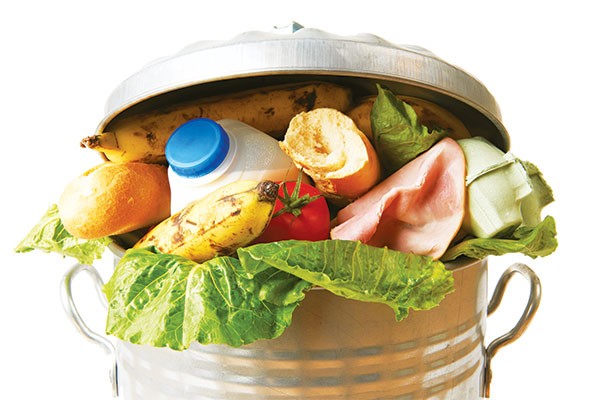So instead of a recipe I thought I’d write another important aspect to consider about food. It's an all too familiar scenario at my flat with leftover dinners. It's a particular problem for one of my flatmates, who forgets about food and ends up buying more while the forgotten food rots away in the pantry. At one point we would hide her mouldy oranges in her room and wait until she'd notice, somehow she never did.
I guess day by day, throwing food out is an easy problem to ignore until you realise the extent of it. Households are the largest contributor to food waste in our society. The average household wastes 79kgs of food annually. It's me and you in our little homes who are contributing the majority of the food that ends up in landfills.
One third of food produced is wasted globally. That’s like having three shopping bags and just dropping one of them. In New Zealand, we throw out enough food each year to feed the whole population of Dunedin for two years. Clearly something needs to be done to address this, that’s where Love Food Hate Waste comes in. All this research has been done under their campaign in collaboration with local councils and the University of Otago. They even went through people’s rubbish bins on collection days to find out the extent of it.
Throwing away food is not just a shame because someone could have eaten it. It’s a waste of energy that was put into growing, manufacturing, transporting and selling that item. This isn’t a new phenomenon, people have recognised this issue in the past and that’s why people started dumpster-diving. I have attempted to dumpster-dive before, but they lock and hide the bins now. As anticlimactic as it was, it's probably better to address the problem at a more individual level anyway, since so much of the waste is coming from homes.
Do you regularly throw out food? Maybe you buy too much, that it just ends up getting spoilt? I'm sure we all agree that it's a shame to buy and then just bin food.
Dumpster-diving may have been a bust anyway since both New World Centre City and Countdown, as well as many cafes donate their leftover food to a local organisation called FoodShare.
FoodShare then distributes the food to charities around Dunedin. In their four years running they have rescued over one million meals which have been fed back to the Dunedin community to food banks such as Presbyterian Support and Women’s Refuge.
Despite the world having an abundance of food, riches are concentrated in the developed countries, and many people are still suffering from malnutrition. Being conscious and smart about your food waste could be the simplest but most effective environmental and humanitarian effort you make during your lifetime. Possibly more than turning vegan even. Plus you'll save money.
Love Food Hate Waste started in the UK where it’s been a massive success. France now has a law that forbids supermarkets from throwing away unsold food, forcing them to give it to charities. New Zealand has all the potential to benefit from the Love Food Hate Waste campaign. We do want to maintain that clean green image after all. We just need to cultivate a culture that cares and shares enough not to let food go to waste.
If you want to start reducing your food waste, lovefoodhatewaste.co.nz has some really good resources and recipes. Some University of Otago consumer food science students have also produced a “Waste Not Want Not” recipe book which you can download online. If you have been moved to act in the community, you can also volunteer at FoodShare.
Some general tips to start cutting down your food waste at the flat:
- Eat seasonally
- Learn how to use as much produce as you can.
- Only buy and prepare enough food to eat in a short amount of time
- Have a "use first" shelf in the pantry
- Have leftovers for lunch
“The way humanity manages or mismanages its food supply will in many ways define the 21st century—currently we know that we are not doing a great job, with at least one third of all food produced lost or wasted. It is an ethical and economic challenge but also an environmental one.” —Nick Nuttall, Global Director of Communications, United Nations Environment Programme



